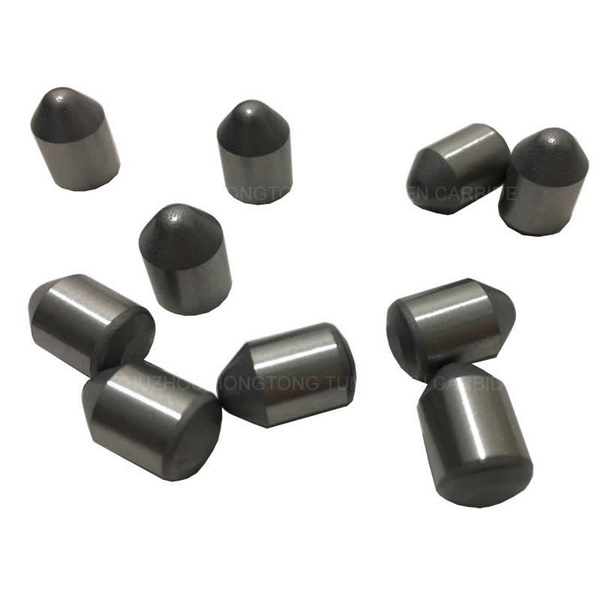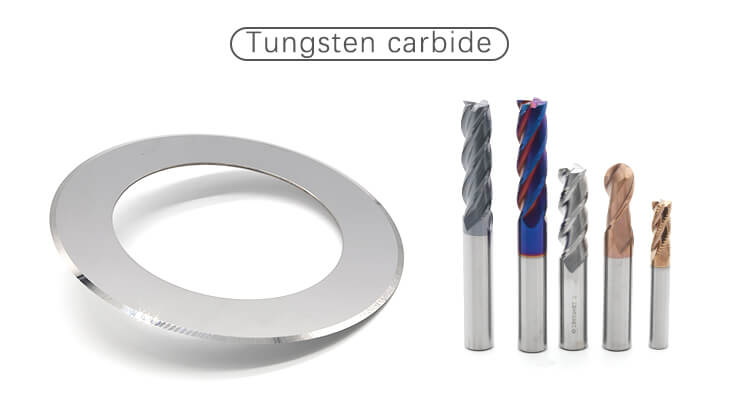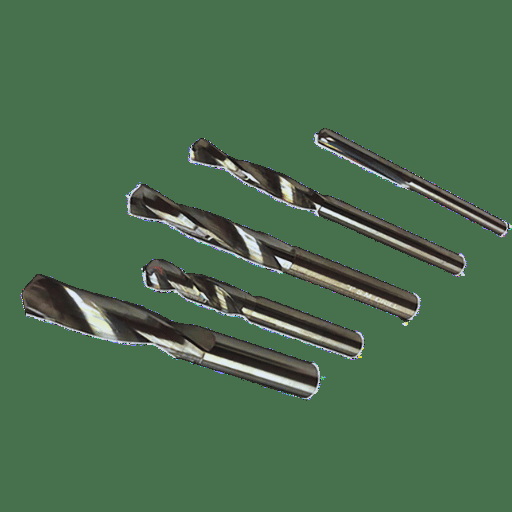Content Menu
● Understanding Carbide and Tungsten Bits
● Advantages of Carbide Bits
● Disadvantages of Carbide Bits
● Advantages of Tungsten Bits
● Disadvantages of Tungsten Bits
● Key Features to Consider When Choosing Drill Bits for Concrete
● Comparison Table: Carbide vs. Tungsten Bits
● Applications of Carbide and Tungsten Bits
>> Carbide Bit Applications
>> Tungsten Bit Applications
● Selecting the Right Drill Bit
● Maintenance Tips for Drill Bits
● Conclusion
● FAQ
>> 1. Are carbide drill bits suitable for all types of concrete?
>> 2. How do I prevent my carbide bits from breaking?
>> 3. Can I use tungsten bits for masonry work?
>> 4. How do I maintain my drill bits?
>> 5. What is the best type of drill for using these bits?
● Citations:
When it comes to drilling into concrete, choosing the right drill bit is crucial for achieving optimal results. Among the various options available, carbide are two of the most popular choices. This article will explore the differences between carbide and tungsten bits, their advantages and disadvantages, and how to select the best option for your concrete drilling needs.

Understanding Carbide and Tungsten Bits
Carbide Bits:
Carbide drill bits are primarily made from tungsten carbide, a compound known for its hardness and durability. These bits can effectively drill through tough materials such as concrete, masonry, and even metals. They are often used in construction and industrial applications due to their ability to maintain sharpness over extended use.
Tungsten Bits:
While often used interchangeably with carbide bits, tungsten bits typically refer to tools made from tungsten or tungsten alloys. These bits are also known for their strength but may not always have the same hardness as carbide. Tungsten bits are generally used in applications requiring precision drilling but may not be as effective for heavy-duty tasks like drilling into concrete.
Advantages of Carbide Bits
- Durability: Carbide bits are exceptionally durable and can withstand high temperatures and wear, making them ideal for drilling into hard materials like concrete.
- Sharpness Retention: They maintain their sharpness longer than many other types of drill bits, which reduces the frequency of replacements.
- Versatility: Carbide bits can be used on various materials, including masonry, metal, and wood.
- Heat Resistance: Their ability to dissipate heat effectively allows them to perform well in high-speed drilling operations without losing efficacy.
Disadvantages of Carbide Bits
- Brittleness: Despite their strength, carbide bits can be brittle and may break if subjected to excessive pressure or improper use.
- Cost: They tend to be more expensive than other types of drill bits due to the materials used in their construction.
Advantages of Tungsten Bits
- Strength: Tungsten bits have high tensile strength, making them suitable for precision tasks that require stability.
- Cost-Effectiveness: While they may not last as long as carbide bits in heavy-duty applications, they often come at a lower price point.

Disadvantages of Tungsten Bits
- Less Effective on Hard Materials: Tungsten bits may struggle with tougher materials like concrete compared to carbide options.
- Shorter Lifespan: They typically do not retain sharpness as long as carbide bits when used on hard surfaces.
Key Features to Consider When Choosing Drill Bits for Concrete
When selecting drill bits for concrete projects, consider the following factors:
- Material Composition: Opt for carbide-tipped or full carbide drill bits for maximum effectiveness on concrete.
- Bit Design: Look for features such as a reinforced shank and fluted design that aids in dust removal during drilling.
- Drill Type Compatibility: Ensure that the chosen bit is compatible with your hammer drill or rotary hammer for optimal performance.
Comparison Table: Carbide vs. Tungsten Bits
| Feature | Carbide Bits | Tungsten Bits |
| Hardness | Very high (Mohs 9-9.5) | High but generally lower than carbide |
| Durability | Excellent; withstands wear | Good; less durable than carbide |
| Brittleness | Can be brittle | More flexible |
| Cost | Higher | Generally lower |
| Best Use | Heavy-duty applications like concrete | Precision tasks |
Applications of Carbide and Tungsten Bits
Both carbide and tungsten bits have specific applications where they excel:
Carbide Bit Applications
1. Concrete Drilling: Ideal for creating holes in concrete walls or floors.
2. Masonry Work: Effective for brickwork and stone installations.
3. Metal Drilling: Suitable for drilling through tougher metals like cast iron or stainless steel.
4. Tile Installation: Useful for making precise holes in ceramic tiles without cracking them.
Tungsten Bit Applications
1. Precision Drilling: Excellent for applications requiring small holes, such as in electronics manufacturing.
2. Composite Materials: Effective in drilling through modern composite materials used in construction.
3. Soft Metals: Suitable for softer metals where precision is more critical than durability.
4. Ceramic Tiles: Can penetrate fire-hardened glazes found on ceramic tiles effectively.
Selecting the Right Drill Bit
Choosing the right drill bit depends on various factors related to your specific project needs:
- Project Scope: For heavy-duty projects involving extensive concrete work, carbide bits are recommended due to their durability and efficiency.
- Material Type: If working primarily with softer materials or requiring precise holes, tungsten bits may suffice.
- Budget Considerations: If cost is a significant factor, tungsten bits can provide a more economical solution while still delivering satisfactory results for less demanding tasks.
Maintenance Tips for Drill Bits
Proper maintenance can extend the life of both carbide and tungsten drill bits:
1. Clean After Use: Remove any debris or dust from the bit after each use to prevent buildup that can affect performance.
2. Store Properly: Keep drill bits in a protective case or holder to prevent damage during storage.
3. Use Appropriate Speed Settings: Adjust your drill's speed according to the material being drilled; slower speeds are often better for harder materials to avoid overheating.
4. Avoid Excessive Pressure: Let the bit do the work; forcing it can lead to breakage or dulling of the cutting edge.
5. Sharpening Techniques: For some types of drill bits, especially those made from cobalt or high-speed steel (HSS), sharpening can prolong their life significantly; however, this is less applicable to carbide tips due to their brittleness.
Conclusion
In summary, when it comes to drilling into concrete, carbide bits are generally the superior choice due to their exceptional hardness, durability, and ability to maintain sharpness over time. While tungsten bits can be useful for specific precision tasks and may come at a lower cost, they do not perform as well in heavy-duty applications like concrete drilling. For anyone working on construction or renovation projects involving concrete, investing in high-quality carbide drill bits is advisable.

FAQ
1. Are carbide drill bits suitable for all types of concrete?
Yes, carbide drill bits are highly effective for all types of concrete, including reinforced concrete with rebar.
2. How do I prevent my carbide bits from breaking?
To prevent breakage, ensure you use the correct speed settings on your drill and apply consistent pressure without forcing the bit into the material.
3. Can I use tungsten bits for masonry work?
While tungsten bits can be used for masonry work, they are not recommended for heavy-duty tasks like drilling into concrete due to their lower hardness compared to carbide bits.
4. How do I maintain my drill bits?
Keep your drill bits clean after use, store them in a protective case, and avoid using them on materials they are not designed for to extend their lifespan.
5. What is the best type of drill for using these bits?
A hammer drill or rotary hammer is ideal when using carbide or tungsten drill bits on concrete as it provides the necessary power and impact needed for effective drilling.
Citations:
[1] https://shop.machinemfg.com/tungsten-carbide-drill-bits-benefits-and-applications/
[2] https://www.protoolreviews.com/best-drill-bits-reviews/
[3] https://ruwag.co.za/blogs/news/what-are-the-best-drill-bits-for-concrete
[4] https://ruwag.co.za/blogs/news/everything-you-need-to-know-about-carbide-drill-bits
[5] https://www.youtube.com/watch?v=XOdpgxn20ts
[6] https://www.screwfix.com/guides/tools/guide-to-types-of-drill-bits
[7] https://www.speedtigertools.com/solution/ins.php?index_id=102
[8] https://www.popularmechanics.com/home/g45642813/best-masonry-drill-bits/
[9] https://www.diy.com/ideas--advice/tools--equipment/power-tools/how-to-choose-the-right-drill-bits
[10] https://benchmarkabrasives.com/blogs/news/hss-vs-cobalt-vs-carbide-drill-bits-what-to-choose
[11] https://trdsf.com/blogs/news/drill-bit-selection-guide-types-uses-and-maintenance
[12] https://adiseal.com/masonry-drill-bit/
[13] https://www.youtube.com/watch?v=Lbalr98XfbI
[14] https://ctpcryogenics.com/carbide-drill-bits/
[15] https://herrytool.com/article/4442
[16] https://benchmarkabrasives.com/blogs/news/guide-to-drill-bits-for-concrete-metal-tile-wood
[17] https://www.pinterest.com/pin/355995545539843436/
[18] https://www.hilti.com.hk/c/CLS_POWER_TOOL_INSERT_7126/CLS_CONCRETE_MASONRY_DRILL_BITS_7126
[19] https://www.herrytool.com/article/4445
[20] https://www.bosch-professional.com/gb/en/innovation/the-best-concrete-drill-bits/
[21] https://adiseal.com/best-drill-bits/
[22] https://blog.builders.co.za/how-to-choose-the-right-drill-bit/
















